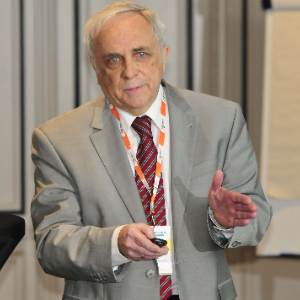Title : Upgraded prodromal diagnosis of parkinson’s disease based on a search for biomarkers and a provocation test
Abstract:
Motor symptoms first appear in Parkinson’s disease (PD) years after beginning of degradation of the nigrostriatal dopaminergic system at loss of threshold amount of dopamine (DA) in the striatum (70%), which explains low efficiency of treatment. Therefore, the development of preclinical diagnosis of PD is a high priority. Considering the systemic pathogenesis of PD, current methodology is based mainly on finding biomarkers, such as non-motor clinical symptoms and changes in body fluids (blood, CSF) and blood cells. A number of weak points makes this methodology doubtful: (i) there is no guarantee that biomarkers found in body fluids of patients at clinical stage are also characteristic of patients at preclinical stage; (ii) considering that individual biomarkers (non-motor symptoms, changes in body fluids) are semi-specific, it is necessary to use a battery of biomarkers; (iii) the diagnostic procedure should be too expensive for mass examinations. This methodology can be improved by additional searching biomarkers in animals at modeling preclinical PD. In fact, some biomarkers, detected in blood of patients were also present in mice at symptomatic stage (e.g., DOPAC, L-DOPA in plasma, D3 gene expression in lymphocytes). However, only few of them (e.g., L-DOPA, D3) were detected in presymptomatic mice, suggesting that only these markers are suitable for PD preclinical diagnosing. Importantly, the alternative approach - the provocative, or challenge test can be successfully used for specific preclinical diagnosis of chronic internal diseases. Provocative test is used to specifically and reversibly enhance latent failure of a defective organ to the threshold level, thereby causing a short-term appearance of specific symptoms. We have proven the validity of this methodology for the development of preclinical diagnosis of PD by systemic administration of a reversible inhibitor of dopamine synthesis to 1-methyl-4- phenyl-1,2,3,6-tetrahydropyridine-treated mice at the presymptomatic stage of parkinsonism.
Conclusion: We developed a novel methodology for preclinical diagnosing of PD, basing on a search for biomarkers in blood in patients and experimental models, and a provocation test.
Audience take away:
Authors present a novel methodology that can be applied to various studies focusing on developing preclinical diagnosing of Parkinson’s disease.




